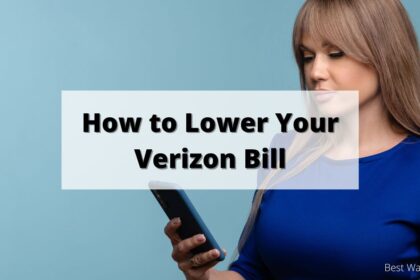In today’s cluttered media landscape, capturing consumer attention and influencing purchasing decisions is a constant battle for businesses. Advertising serves as a powerful weapon in this ongoing struggle, but its effectiveness hinges on understanding the psychology behind consumer behavior. By harnessing fundamental psychological principles, advertisers can craft campaigns that resonate with emotions, trigger desired actions, and ultimately, drive sales success.
This article delves into the fascinating world of psychological influences in advertising, exploring how these principles shape the way we perceive messages and make decisions. We’ll unpack key strategies employed by advertisers, showcase real-world examples of successful campaigns, and equip you with practical tips to incorporate these principles into your own marketing efforts.
Emotions: The Driving Force Behind Decisions
Human beings are emotional creatures. Our feelings significantly influence how we perceive information and make choices. Understanding this fundamental truth is paramount for advertisers seeking to craft impactful campaigns. Fear, excitement, nostalgia, humor – these are all emotions that advertising can leverage to trigger a desired response.
Consider a public service announcement aimed at raising awareness about drunk driving. A purely informative approach might outline the legal consequences. However, a more impactful campaign might evoke a powerful emotional response, showcasing the devastating impact on families and loved ones. This emotional connection is far more likely to resonate with viewers and encourage responsible behavior.
Example: The Ad Council’s “Friends Don’t Let Friends Drive Drunk” campaign is a classic example of leveraging negative emotions (fear and sadness) to promote responsible behavior. The campaign’s success lies in its ability to connect with viewers on an emotional level, prompting them to consider the potential consequences of drunk driving.
Social Proof and the Power of Authority
Humans are social creatures who inherently seek validation and guidance from others. This innate desire for social proof is a powerful tool in the advertising toolbox. Testimonials, celebrity endorsements, and influencer marketing all capitalize on this principle, leveraging the perceived credibility and positive experiences of others to build trust and influence purchasing decisions.
Imagine a new line of athletic wear being launched. The brand could showcase a generic model wearing the product. However, a more effective approach might involve featuring a renowned athlete endorsing the clothing, highlighting its performance benefits. By associating with a respected figure, the brand leverages the athlete’s credibility and social influence to build trust and entice potential buyers.
Example: Nike’s long-standing partnership with Michael Jordan is a prime illustration of the power of celebrity endorsement. Jordan’s status as a basketball legend adds a layer of credibility and desirability to Nike products, influencing purchasing decisions for generations of fans.
Scarcity and Urgency: The Fear of Missing Out
The concept of scarcity, or limited availability, is a powerful motivator. By creating a sense of urgency or limited-time offers, advertisers can nudge consumers towards immediate action. Fear of missing out (FOMO) plays a significant role in this strategy, prompting consumers to act before a perceived opportunity disappears.
Imagine a sales promotion for a popular electronics brand. Instead of simply advertising a discount, the ad might highlight a limited number of products available at the reduced price or a specific deadline for the offer. This creates a sense of urgency, encouraging potential buyers to act quickly to secure the deal before it’s gone.
Example: Airlines frequently utilize scarcity tactics by advertising limited-time seat sales or highlighting the few remaining seats available on a specific flight. This approach creates a sense of urgency, prompting potential travelers to book their tickets right away for fear of missing out on the discounted fare or preferred seats.
Storytelling and Cognitive Biases: Weaving a Compelling Narrative
Humans are wired to connect with stories. Compelling narratives can capture our attention, evoke emotions, and influence our perception of information. This is where the power of storytelling in advertising comes into play. By crafting a narrative that resonates with the target audience, advertisers can subtly influence their decision-making process.
Consider a car commercial that simply showcases the vehicle’s technical specifications. While informative, this approach might not be as engaging as a commercial that tells a story. Imagine a narrative that depicts a family embarking on a road trip adventure, showcasing the car’s functionality and reliability throughout the journey. This emotional connection and engaging story can leave a lasting impression on viewers, influencing their perception of the car’s brand and features.
Example: Apple’s “Shot on iPhone” campaign is a remarkable example of leveraging storytelling in advertising. These ads don’t explicitly promote the technical prowess of the iPhone camera. Instead, they showcase stunning visuals captured on iPhones, often accompanied by user-generated content. This narrative approach subtly positions the iPhone as a tool for creativity and storytelling, resonating with a specific audience segment.
Having explored the power of psychological principles in advertising, let’s delve into practical ways you can leverage them in your marketing efforts. Here are some actionable tips, along with how a marketing agency in Orlando like WGNR can assist you:
- Know Your Audience: Understanding your target audience is the foundation of any successful marketing campaign. WGNR conducts thorough market research to identify your ideal customer demographics, motivations, and pain points. This allows us to tailor your message and psychological triggers to resonate with their specific needs and desires.
- Craft Compelling Messaging: Develop clear, concise messaging that speaks directly to your audience’s emotions and motivations. WGNR’s team of experienced copywriters can craft powerful messaging that utilizes strong verbs and positive language to evoke a desired response.
- Harness the Power of Visuals: People are visual creatures. WGNR’s design team can create high-quality images, videos, and infographics that capture attention and visually reinforce your message. We consider the emotional impact of visuals to ensure they resonate with your target audience.
- A/B Testing is Key: Don’t be afraid to experiment! Develop different ad variations based on various psychological principles. WGNR utilizes A/B testing platforms to measure which approach resonates best with your target audience and delivers the most significant results. This allows for data-driven optimization of your advertising campaigns.
WGNR: Your Partner in Psychology-Driven Marketing
WGNR is a full-service advertising agency Orlando specializing in crafting impactful marketing campaigns that leverage the power of psychology. Pussy888 We offer a comprehensive suite of services designed to help you achieve your marketing goals:
- Market Research and Audience Analysis: We conduct in-depth research to understand your target audience and their psychological makeup.
- Strategic Planning and Development: We develop a data-driven marketing strategy that leverages psychological principles to create targeted messaging and campaigns.
- Creative Development: Our team of creative professionals crafts compelling visuals, narratives, and messaging that resonate with your audience on an emotional level.
- Campaign Management and Optimization: We manage your advertising campaigns across various platforms and utilize A/B testing to optimize performance for maximum impact.
By partnering with WGNR, you gain access to a team of experts who understand the science of influencing consumer behavior. We’ll help you craft marketing campaigns that not only grab attention but also trigger desired actions and drive business growth.
Understanding the psychological principles that influence consumer behavior equips you to craft more effective and impactful advertising campaigns. By harnessing the power of emotions, social proof, storytelling, and other key principles, you can create compelling narratives that resonate with your target audience and ultimately drive business success. Remember, responsible and ethical use of these principles is paramount in building trust and fostering long-term brand loyalty. Consider partnering with a branding agency Orlando like WGNR to leverage psychology and create impactful marketing campaigns.








